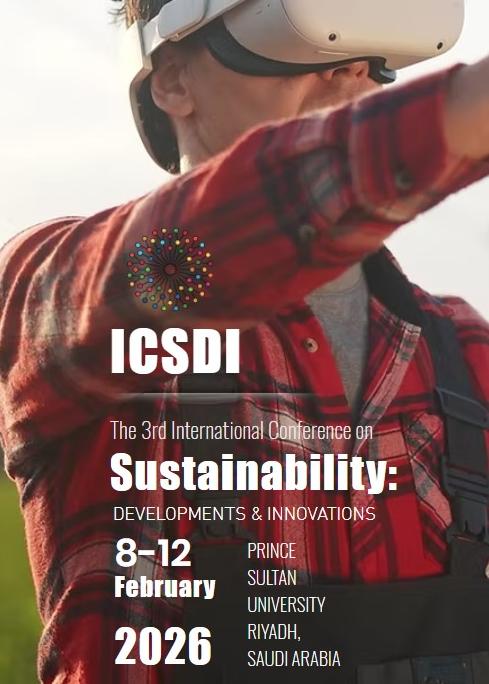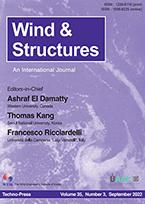The 6th International Workshop on Argument Mining
Argmining 2019
- URL: https://argmining19.webis.de/
- Event Date: 2019-08-01 ~ 2019-08-01
- Submission Date: 2019-04-26
- Location: Florence, Italy
The 6th Argmining 2019 ( https://argmining19.webis.de/ ) workshop will be collocated with ACL 2019 on the 1st of August, in Florence, Italy.
====================
Call for Papers
====================
The 6th Argmining 2019 workshop invites the submission of long and short papers on substantial, original, and unpublished research in all aspects of argument mining.
Argument mining (also known as "argumentation mining") is a young and emerging research area within computational linguistics. At its heart, argument mining involves the automatic identification of argumentative structures in free text, such as the conclusions, premises, and inference schemes of arguments as well as their interrelations and counter-considerations.
To date, researchers have investigated argument mining on genres such as legal documents, product reviews, news articles, online debates, user-generated web discourse, Wikipedia articles, academic literature, persuasive essays, tweets, and dialogues. Recently, also argument quality assessment came into focus. In addition, argument mining is inherently tied to stance and sentiment analysis, since every argument carries a stance towards its topic, often expressed with sentiment.
Argument mining gives rise to various practical applications of great importance. In particular, it provides methods that can find and visualize the main pro and con arguments in a text corpus - or even on in an argument search on the web - towards a topic or query of interest. In instructional contexts, written and diagrammed arguments represent educational data that can be mined for conveying and assessing students' command of course material. In information retrieval, argument mining is expected to play a salient role in the emerging field of conversational search. And with the IBM Debater, technology based on argument mining recently received a lot of media attention.
While solutions to basic tasks such as component segmentation and classification slowly become mature, many tasks remain largely unsolved, particularly in more open genres and topical domains. Success in argument mining requires interdisciplinary approaches informed by NLP technology, theories of semantics, pragmatics and discourse, knowledge of discourse in application domains, artificial intelligence, information retrieval, argumentation theory, and computational models of argumentation.
Topics for submission include but are not limited to:
Automatic identification of argument components (premises and conclusions or more fine-grained), and relations between arguments and counterarguments (support and attack or more fine-grained) in as well as across documents;
Automatic assessment of properties of arguments and argumentation, such as argumentation schemes, stance, quality, and persuasiveness;
Automatic synthesis of arguments and their components, including the consideration of discourse goals (e.g., stages of a critical discussion or rhetorical strategies) and the possibly needed preceding analyses;
Creation and evaluation of argument annotation schemes, relationships to linguistic and discourse annotations, (semi-) automatic argument annotation methods and tools, and creation of argumentation corpora;
Management of spoken and transcribed dialogue, argument mining from such data, including additional challenges posed by real-time processing;
Combination of NLP methods and AI models developed for argumentation, such as abstract and structured argumentation frameworks;
Combination of information retrieval methods with argument mining, e.g. in order to build the next generation of argumentative (web) search engines;
Use of argument mining for studying research questions from the social sciences, digital humanities, and related fields;
Real-world applications, including argument web search, opinion analysis in customer reviews, argument analysis in meetings, and applications in specific domains such as education, law, and scientific writing.
====================
Dates
====================
Submission due: April 26, 2019
Notification of acceptance: May 24, 2019
Camera-ready papers due: June 3, 2019
Workshop: August 1, 2019
All deadlines are 11:59PM UTC-12:00 ("anywhere on Earth").
=========================
Submission Information
=========================
Three types of papers can be submitted:
- Long papers (8 pages + references),
- Short papers (4 pages + references), and
- Demo papers (4 pages + references).
Demo papers must include a URL to a running demo. Accepted papers will be given an additional page to account for the reviewers' comments. All papers will be treated equally in the workshop proceedings.
Submission is electronic, using the Softconf START conference management system: Submit your paper here https://www.softconf.com/acl2019/argmining/
All paper submissions must use the official ACL 2019 style templates
The workshop is running a double-blind review process. In preparing your manuscript, do not include any information which could reveal your identity, or that of your co-authors. The title section of your manuscript should not contain any author names, email addresses, or affiliation status. If you do include any author names on the title page, your submission will be automatically rejected. In the body of your submission, you should eliminate all direct references to your own previous work. That is, avoid phrases such as "this contribution generalizes our results for XYZ". Also, please do not disproportionately cite your own previous work. In other words, make your submission as anonymous as possible. We need your cooperation in our effort to maintain a fair, double-blind reviewing process - and to consider all submissions equally.
ArgMining 2019 will adhere to the policies and guidelines for submission, review and citation, recently released by the ACL. Submissions that violate any of these policies will be rejected without review.
Papers that have been or will be submitted to other venues should indicate this at submission time. Upon acceptance at either event, the submission must be withdrawn from the other. To save reviewers efforts, avoid submitting (or withdraw early) papers that are on track to be accepted elsewhere.
=========================
Co-chair
=========================
Benno Stein, Bauhaus-Universität, Weimar (co-chair)
Henning Wachsmuth, Paderborn University (co-chair)
====================
Call for Papers
====================
The 6th Argmining 2019 workshop invites the submission of long and short papers on substantial, original, and unpublished research in all aspects of argument mining.
Argument mining (also known as "argumentation mining") is a young and emerging research area within computational linguistics. At its heart, argument mining involves the automatic identification of argumentative structures in free text, such as the conclusions, premises, and inference schemes of arguments as well as their interrelations and counter-considerations.
To date, researchers have investigated argument mining on genres such as legal documents, product reviews, news articles, online debates, user-generated web discourse, Wikipedia articles, academic literature, persuasive essays, tweets, and dialogues. Recently, also argument quality assessment came into focus. In addition, argument mining is inherently tied to stance and sentiment analysis, since every argument carries a stance towards its topic, often expressed with sentiment.
Argument mining gives rise to various practical applications of great importance. In particular, it provides methods that can find and visualize the main pro and con arguments in a text corpus - or even on in an argument search on the web - towards a topic or query of interest. In instructional contexts, written and diagrammed arguments represent educational data that can be mined for conveying and assessing students' command of course material. In information retrieval, argument mining is expected to play a salient role in the emerging field of conversational search. And with the IBM Debater, technology based on argument mining recently received a lot of media attention.
While solutions to basic tasks such as component segmentation and classification slowly become mature, many tasks remain largely unsolved, particularly in more open genres and topical domains. Success in argument mining requires interdisciplinary approaches informed by NLP technology, theories of semantics, pragmatics and discourse, knowledge of discourse in application domains, artificial intelligence, information retrieval, argumentation theory, and computational models of argumentation.
Topics for submission include but are not limited to:
Automatic identification of argument components (premises and conclusions or more fine-grained), and relations between arguments and counterarguments (support and attack or more fine-grained) in as well as across documents;
Automatic assessment of properties of arguments and argumentation, such as argumentation schemes, stance, quality, and persuasiveness;
Automatic synthesis of arguments and their components, including the consideration of discourse goals (e.g., stages of a critical discussion or rhetorical strategies) and the possibly needed preceding analyses;
Creation and evaluation of argument annotation schemes, relationships to linguistic and discourse annotations, (semi-) automatic argument annotation methods and tools, and creation of argumentation corpora;
Management of spoken and transcribed dialogue, argument mining from such data, including additional challenges posed by real-time processing;
Combination of NLP methods and AI models developed for argumentation, such as abstract and structured argumentation frameworks;
Combination of information retrieval methods with argument mining, e.g. in order to build the next generation of argumentative (web) search engines;
Use of argument mining for studying research questions from the social sciences, digital humanities, and related fields;
Real-world applications, including argument web search, opinion analysis in customer reviews, argument analysis in meetings, and applications in specific domains such as education, law, and scientific writing.
====================
Dates
====================
Submission due: April 26, 2019
Notification of acceptance: May 24, 2019
Camera-ready papers due: June 3, 2019
Workshop: August 1, 2019
All deadlines are 11:59PM UTC-12:00 ("anywhere on Earth").
=========================
Submission Information
=========================
Three types of papers can be submitted:
- Long papers (8 pages + references),
- Short papers (4 pages + references), and
- Demo papers (4 pages + references).
Demo papers must include a URL to a running demo. Accepted papers will be given an additional page to account for the reviewers' comments. All papers will be treated equally in the workshop proceedings.
Submission is electronic, using the Softconf START conference management system: Submit your paper here https://www.softconf.com/acl2019/argmining/
All paper submissions must use the official ACL 2019 style templates
The workshop is running a double-blind review process. In preparing your manuscript, do not include any information which could reveal your identity, or that of your co-authors. The title section of your manuscript should not contain any author names, email addresses, or affiliation status. If you do include any author names on the title page, your submission will be automatically rejected. In the body of your submission, you should eliminate all direct references to your own previous work. That is, avoid phrases such as "this contribution generalizes our results for XYZ". Also, please do not disproportionately cite your own previous work. In other words, make your submission as anonymous as possible. We need your cooperation in our effort to maintain a fair, double-blind reviewing process - and to consider all submissions equally.
ArgMining 2019 will adhere to the policies and guidelines for submission, review and citation, recently released by the ACL. Submissions that violate any of these policies will be rejected without review.
Papers that have been or will be submitted to other venues should indicate this at submission time. Upon acceptance at either event, the submission must be withdrawn from the other. To save reviewers efforts, avoid submitting (or withdraw early) papers that are on track to be accepted elsewhere.
=========================
Co-chair
=========================
Benno Stein, Bauhaus-Universität, Weimar (co-chair)
Henning Wachsmuth, Paderborn University (co-chair)














